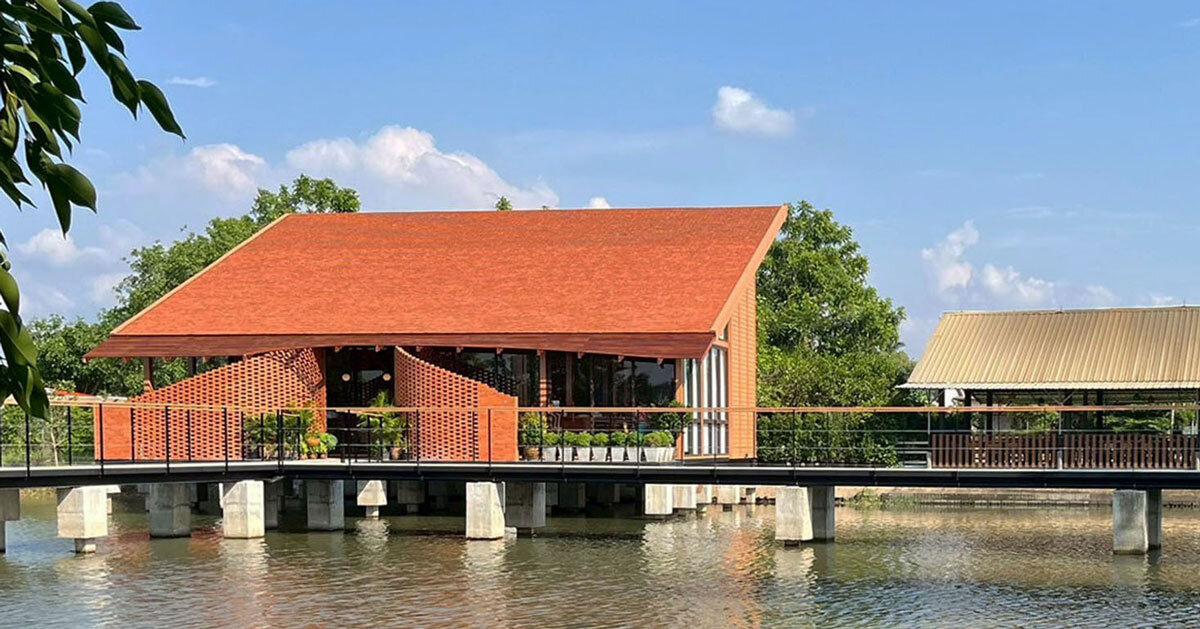Morjor Café by Studio Bewell employs Regional Materials
Located adjacent to the existing Chai Thung Restaurant, Morjor Café was conceived by Studio Bewell as an extension to accommodate additional visitors while maintaining the spatial and atmospheric continuity of the original site. The new café sits partially over a pond and integrates local materials and construction knowledge drawn from Dan Kwian, a village renowned for its pottery traditions in the Korat region of Thailand. The architectural approach centers on the reinterpretation of Dan Kwian’s terracotta, a material selected for its availability, durability, and cultural relevance. Characterized by its bronze-like tones, ranging from deep red-browns to near black, the terracotta is fired at high temperatures without added pigments, producing a natural and consistent palette that defines the café’s material language.
Terracotta roof tiles, cut-edge and installed at a slight incline, reference the geometry of the nearby restaurant roof while adapting it into a contemporary architectural form. This roof treatment, along with terracotta floor tiling, creates material continuity across surfaces. In addition, red solid bricks were assembled along a curved entry route. This design move, inspired by the forms of traditional pottery, scales down the approach to the building and establishes a threshold that connects the built structure to the surrounding natural context.
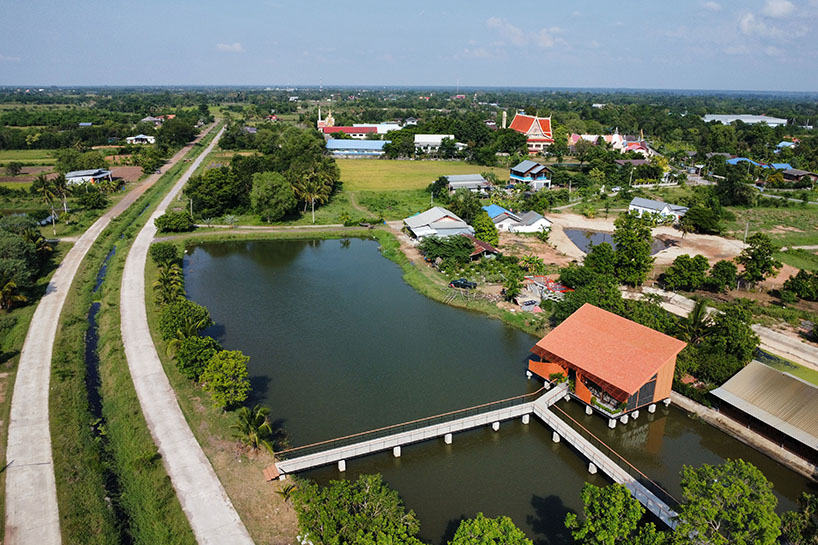
all images courtesy of Studio Bewell
Morjor Café Embeds Regional Ceramic Traditions in Design
Internally, the café floor features white terrazzo incorporating fragments of terracotta grade B tiles sourced from local factories. These fragments, repurposed and rearranged by local craftsmen, form a distinctive surface that highlights both reuse and artisanal input. A notable feature of the design is the use of jor, ceramic saggars traditionally employed during firing processes in Dan Kwian kilns. Typically serving as support containers to protect more delicate pottery in the kiln, these utilitarian forms are recontextualized as sculptural objects within the café. Their inclusion offers a direct material reference to local ceramic production, integrating function, history, and spatial narrative.
Through site-sensitive planning and material reuse, Morjor Café by architectural practice Studio Bewell reflects a broader strategy of working with local knowledge systems and craft-based materials. The project serves as both a functional public space and a quiet documentation of regional ceramic practices, embedded within the architecture itself.
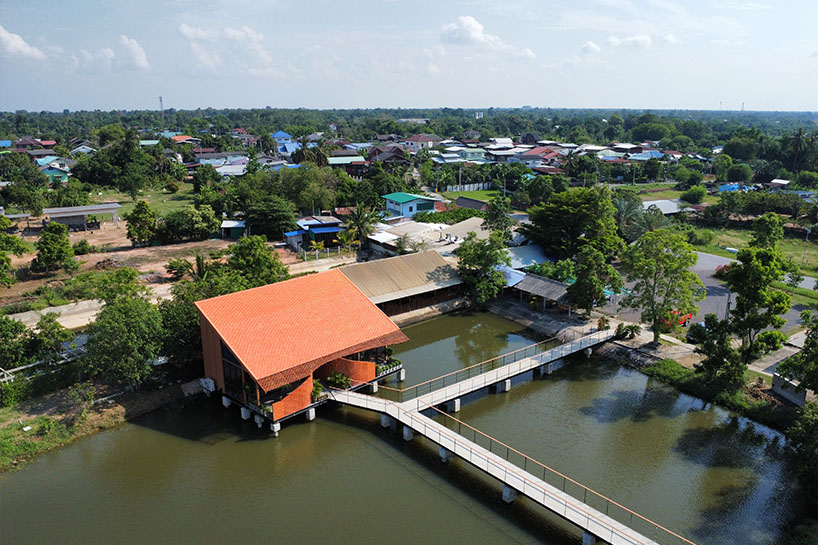
Morjor Café sits partially over a pond, extending Chai Thung Restaurant
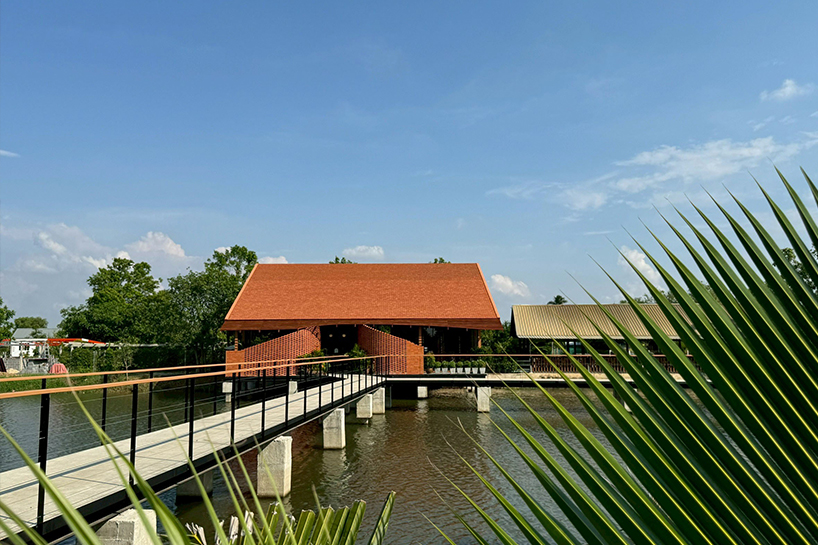
the café was designed as an integrated expansion, maintaining the original site’s ambiance
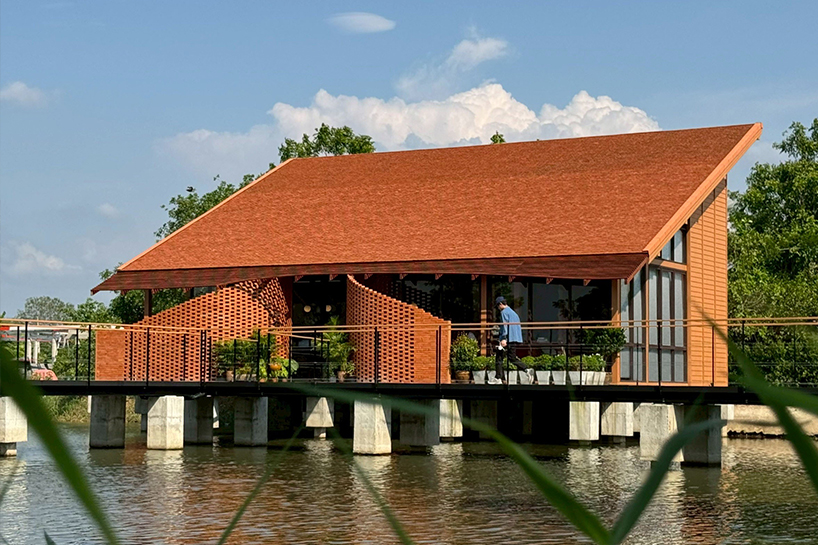
local terracotta from Dan Kwian forms the project’s core material palette
